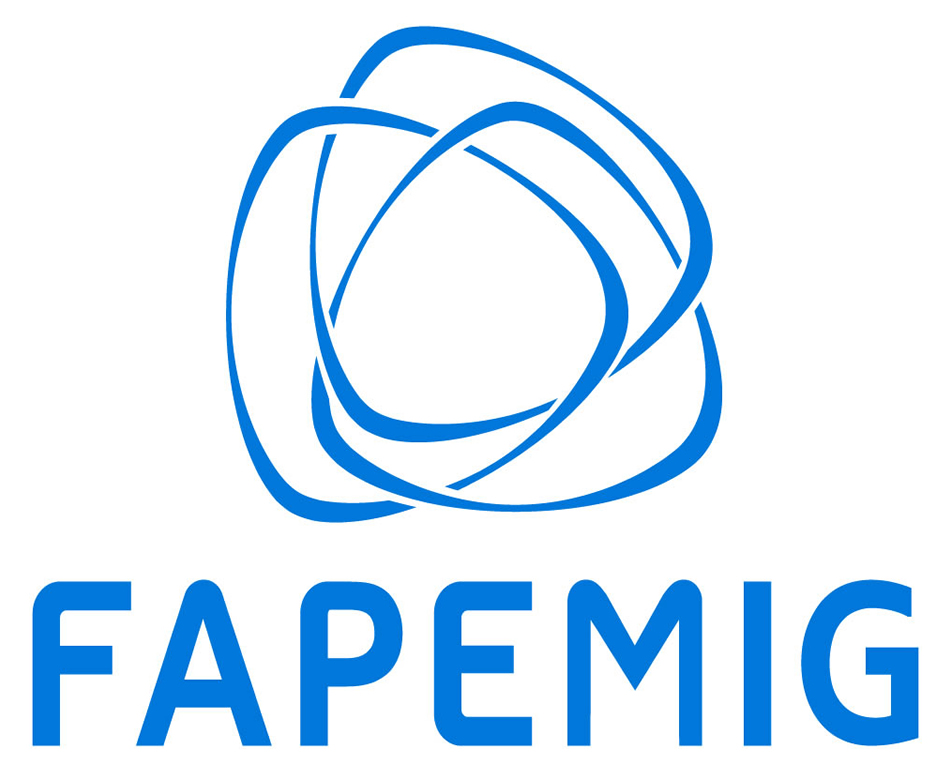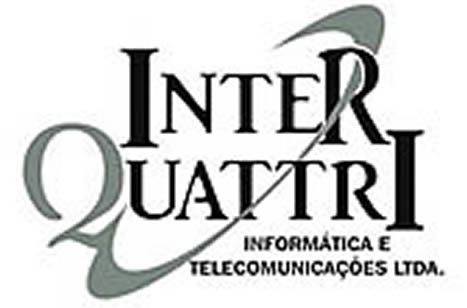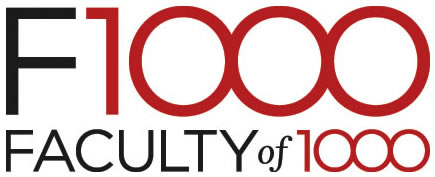Posters
| Category 'J'- Metagenomics' |
| Poster - J01 |
| Taxonomic and functional diversity of microbial community from a mining environment |
| Julliane Medeiros, Universidade Federal de Minas Gerais/ Centro de Pesquisa René Rachou, Brazil |
| Laura Leite, Universidade Federal de Minas Gerais/ Centro de Pesquisa René Rachou, Brazil Sara Cuadros-Orellana, Centro de Pesquisa René Rachou, Brazil Guilherme Oliveira, Centro de Pesquisa René Rachou, Brazil |
| Short Abstract: The aim of this study was to assess the taxonomic and functional microbial diversity in a mining area in the Brazilian Amazon using metagenomics. |
| Poster - J02 |
| Human gut virome in lean and obese twins. |
| Alejandro Reyes, Universidad de los Andes, Colombia |
| Jaime Moreno, Universidad de los Andes, Colombia Lance Boling, San Diego State University, United States Katrine Whiteson, San Diego State University, United States Forest Rohwer, San Diego State University, United States Jeffrey Gordon, Washington University School of Medicine, United States |
| Short Abstract: The microbiome has changed the way we think about ourselves and diseases. Often ignored, viruses can give us valuable information about the ecology of the gut. We studied the virome of over 170 samples in lean and obese individuals, assembled novel viral genomes and uncovered important features of their genomes. |
| Poster - J03 |
| Systematic Review of Metagenomics Workflow Patterns |
| Lucineia Thom, Federal University of Rio Grande do Sul/Institute of Informatics, Brazil |
| Miller Biazus, Federal University of Rio Grande do Sul/Institute of Informatics, Brazil |
| Short Abstract: Currently there exists a variety of scientific workflow systems to design and execute scientific workflows. However, there is no particular study regarding the core model explored by metagenomic workflows. This work proposes a systematic review which encourages new researches focused on a generic workflow to be the core of any |
| Poster - J04 |
| Diversity of Bacteriophages in Composting |
| Deyvid Amgarten, Universidade de São Paulo, Brazil |
| Karen Lombardi, Universidade de São Paulo, Brazil Luciana Antunes, Universidade de São Paulo, Brazil Aline da Silva, Universidade de São Paulo, Brazil João Setubal, Universidade de São Paulo, Brazil |
| Short Abstract: This work aims to analyze the diversity of bacteriophages present in a large-scale composting operation by performing a thorough data mining of full DNA and RNA sequencing data from different time points during the composting process and by isolating phages from composting using Pseudomonas aeruginosa as a host. |
| Poster - J05 |
| Analysis Of The Effect Of Metabolic Network Compartmentalization In Predicting The Behavior Of Microbial Communities |
| Maria Alvarez, University of the Andes, Colombia |
| Astrid Alvarez Yela, Universuty of tthe Andes, Colombia Johana Husserl, Universuty of tthe Andes, Colombia Silvia Restrepo, Universuty of tthe Andes, Colombia Nubia Velasco, Universuty of tthe Andes, Colombia Jorge Mario Cómez, Universuty of tthe Andes, Colombia Andrés Fernando González Barrios , Universuty of tthe Andes, Colombia María Mercedes Zambrano, CorpoGen, Colombia |
| Short Abstract: Metagenomics allow explain the interactions involved in metabolic networks in microbial ecosystems, and evaluate the performance of the system under different environmental conditions. We developed a mathematical representation of metabolic network that integrates sub-cellular locations and a diversity index for soil samples. This network allowed a quantitative analysis of biogeochemical cycles |
| Poster - J06 |
| Computational tool for in silico screening of biosurfactants in metagenomic libraries |
| Andrés González, Universidad de los Andes, Colombia |
| Iván López Sandoval Universidad de los Andes, Colombia Alejandro Reyes, Universidad de los Andes, Colombia Silvia Restrepo, Universidad de los Andes, María Mercedes Zambrano, Corporación Corpogen, |
| Short Abstract: A computational platform was developed in order to identify genes and amino acid sequences with potential application as biosurfactants, according to the presence of amphipathic regions. A preliminary implementation allowed the screening of 5561 amino acid sequences which have a beta-barrel structure from a metagenome of high-altitude Andean forest soil |
| Poster - J07 |
| Identification of metagenomic data by genome signatures and n-entropy analysis |
| Tahila Andrighetti, Universidade Estadual Paulista Julio de Mesquita Filho, Brazil |
| Gunther J. L. Gerhardt, Universidade de Caxias do Sul, Brazil Agnes A. S. Takeda, Universidade Estadual Paulista Júlio de Mesquita Filho, Brazil Ney Lemke, Universidade Estadual Paulista Júlio de Mesquita Filho, Brazil José Luiz Rybarckzyk-Filho, Universidade Estadual Paulista Júlio de Mesquita Filho, Brazil |
| Short Abstract: The advances on sequencing technologies enabled the development of metagenomics, helping with the full characterization of microbiomes. Herein we propose a new technique for metagenomics. Our data suggest that the entropy sequence analysis can be applied in studies of microbiomes as a marker for structural organization of organisms. |
| Poster - J08 |
| Microbial Analysis of Two Brazilian Water Reservoirs Using 16S rRNA by Next Generation Sequencing |
| Bianca Cabral, Universidade Federal do Rio de Janeiro, Brazil |
| Luísa Hoffmann, Universidade Federal do Rio de Janeiro, Brazil Iamê Alves Guedes, Universidade Federal do Rio de Janeiro, Brazil Luciana Loureiro Penha, Universidade Federal do Rio de Janeiro, Brazil Turán Péter Ürményi, Universidade Federal do Rio de Janeiro, Brazil Bruce Budowle, University of North Texas Health Science, United States Sandra Maria Feliciano de Oliveira e Azevedo, Universidade Federal do Rio de Janeiro, Brazil Rosane Silva, Universidade Federal do Rio de Janeiro, Brazil |
| Short Abstract: Metagenomics contribute to understand the dynamics and molecular basis of microorganisms. Our objective is to compare the bacterial diversity of Funil Reservoir (RJ, eutrophic) and Samuel Hydroeletric (RO, oligo-mesotrophic). Preliminary analysis of Next Generation Sequencing reads showed a high variability of bacteria species. More detailed taxonomic analysis is being performed. |
| Poster - J09 |
| MGB: A new Metagenomic Browser |
| Gianluca Silva, University of São Paulo, Brazil |
| João Carlos Setubal, University of São Paulo , Brazil |
| Short Abstract: One of the main functions of this web platform is to associate the taxonomic identification of each read with the contig of which the read is a part, and an annotated ORF (when one exists). Such a capability should enable the rapid identification of chimeric contigs. |
| Poster - J10 |
| Virus metagenomics of bean and associated weeds from Pernambuco state, Brazil. |
| Ana Paula Zotta Mota, EMBRAPA, Brazil |
| Ana Paula Zotta Mota, EMBRAPA, Brazil Natália Lamas, EMBRAPA, Brazil Orzenil Silva-Junior, EMBRAPA, Brazil Marcos Costa, EMBRAPA, Brazil Roberto Togawa, EMBRAPA, Brazil Antonio Costa, Instituto Agronômico de Pernambuco, Brazil Fernando Lucas Melo, Universidade de Brasília, Brazil Priscila Grynberg, EMBRAPA, Brazil Simone Ribeiro, EMBRAPA, Brazil |
| Short Abstract: Metagenomic analysis of viruses is a powerful tool to identify and classify the virus diversity in a population. In this work, field-infected symptomatic bean and weed samples from three different regions of Pernambuco state (Arcoverde, Caruaru and Ibimirim) were analyzed for the presence and diversity of begomoviruses. |
| Poster - J11 |
| METABOLIC ANALYSIS OF METAGENOMIC DATA FROM MICROBIOMES IN THE SÃO PAULO ZOO PARK |
| Deibs Barbosa, Institute of Chemistry - University of São Paulo, Brazil |
| João Setubal, Institute of Chemistry - University of São Paulo, Brazil Aline da Silva, Institute of Chemistry - University of São Paulo, Brazil Cristina Viana-Niero, Federal University of São Paulo, Brazil Layla Martins, Institute of Chemistry - University of São Paulo, Brazil Luciana Antunes, Institute of Chemistry - University of São Paulo, Brazil |
| Short Abstract: This project aims to analyse, through a metagenomic/computational approach, the metabolic potential of microbial communities from two microbiomes found in the São Paulo Zoo Park: a composting system and an artificial lake. |
| Poster - J12 |
| METANO: Metagenomics Analysis based on N-entropies and GC content |
| Jose Rybarczyk-Filho, Institute of Bioscience of Botucatu - UNESP, Brazil |
| Jose Rafael Pilan, Institute of Bioscience of Botucatu, Brazil Tahila Andrighetti, Institute of Bioscience of Botucatu, Brazil Agnes A. S. Takeda, Institute of Bioscience of Botucatu, Brazil Gunther J. L. Gerhardt, Universidade de Caxias do Sul, Brazil Ney Lemke, Institute of Bioscience of Botucatu, Brazil |
| Short Abstract: This work introduces the new software for analysis of metagenomics data called METANO (METgenomics Analysis based on N-entrOpies and gc content). The METANO program is a fast program for assigning taxonomic labels (family, genus and specie) to metagenomic DNA sequences from several sequencing technologies. |
| Poster - J13 |
| Dynamic Analysis Of Metabolic Networks As A Tool To Study The Influence Of Metabolism Activities On Biogeochemical Cycles From Different Ecosystems |
| Astrid Alvarez Yela, University of the Andes, Colombia |
| Short Abstract: None On File |
| Poster - J14 |
| LARGE SCALE VIRUS SURVEILLANCE FROM SMALL RNA DEEP SEQUENCING DATASETS |
| Eric Aguiar, Universidade Federal de Minas Gerais, Brazil |
| Roenick Proveti Olmo, Universidade Federal de Minas Geraus, Brazil Flavia Vianna, Universidade Federal de Minas Gerais, Brazil Simona Paro, CNRS-UPR9022, Institut de Biologie Moleculaire et Cellulaire, France Francisco Lobo, EMBRAPA-Campinas, Brazil Betania Drumond, Universidade Federal de Juiz de Fora, Brazil Nelder Gontijo, Universidade Federal de Minas Gerais, Brazil Mauricio Sant’Ana, Universidade Federal de Minas Gerais, Brazil Luciano Moreira, Centro de Pesquisas René Rachou/ FIOCRUZ, Brazil Carine Meignin, CNRS-UPR9022, Institut de Biologie Moleculaire et Cellulaire, Brazil Jean-Luc Imler, CNRS-UPR9022, Institut de Biologie Moleculaire et Cellulaire, Brazil João Marques, Universidade Federal de Minas Gerais, Brazil |
| Short Abstract: In response to viral infection invertebrates rely on the RNAi pathway, which is triggered by dsRNA generated during viral replication. Here we propose a pipeline to assemble contigs from small RNA libraries.Using our strategy, we were able to identify known and unknown viruses from small RNA deep sequencing data. |
| Poster - J15 |
| Identification of Enzymes that Degrade Cellulose from the Crop of Achatina fulica's Metagenome. |
| Rafael Nicolay Baptista da Silva, Instituto Nacional de Metrologia, Qualidade e Tecnologia, Brazil |
| Rafael Baptista da Silva Instituto Nacional de Metrologia, Qualidade e Tecnologia, Brazil Manuela Leal da Silva, Instituto Nacional de Metrologia, Qualidade de Tecnologia - INMETRO, Brazil |
| Short Abstract: Although it is needed to unveil the protein role experimentally, it can be predicted by the use of bioinformatics tools. Techniques such as structural annotation and phylogeny confer a better knowledge about a protein or a target gene in study and can correlate the likelihood of it's representation in nature. |
| Poster - J16 |
| Towards an Ensemble Learning Strategy for Metagenomic Gene Prediction |
| Fabiana Góes, Federal University of Pará, Brazil |
| Ronnie Alves Vale Institute of Technology, Brazil |
| Short Abstract: None On File |
Posters
Poster Presentation List & Schedule
Odd numbers:
Poster set up: Day 1 - all day long
Take down: Day 2 after Poster Session
Size: Up to 90cm width x 120 cm height
Even Numbers:
Poster set up: Day 2 after Poster session and Day 3 until the first coffee break
Take Down: Day 3 after Poster Session
Size: Up to 90cm width x 120 cm height
| View Posters By Category |
- A) Bioinformatics of Disease and Treatment
- B) Bioinformatic tools and databases
- C) Computational aspects
- D) Comparative Genomics
- E) Education
- F) Epigenetics
- G) Functional Genomics
- H) Genome Organization and Annotation
- I) Genetic Variation Analysis
- J) Metagenomics
- K) Pathogen informatics
- L) Population Genetics Variation and Evolution
- M) Protein Structure and Function Prediction and Analysis
- N) Proteomics
- O) Sequence Analysis
- P) Systems Biology and Networks
- Q) Other
| Search Posters: |
TOP






